- News
- Reviews
- Bikes
- Accessories
- Accessories - misc
- Computer mounts
- Bags
- Bar ends
- Bike bags & cases
- Bottle cages
- Bottles
- Cameras
- Car racks
- Child seats
- Computers
- Glasses
- GPS units
- Helmets
- Lights - front
- Lights - rear
- Lights - sets
- Locks
- Mirrors
- Mudguards
- Racks
- Pumps & CO2 inflators
- Puncture kits
- Reflectives
- Smart watches
- Stands and racks
- Trailers
- Clothing
- Components
- Bar tape & grips
- Bottom brackets
- Brake & gear cables
- Brake & STI levers
- Brake pads & spares
- Brakes
- Cassettes & freewheels
- Chains
- Chainsets & chainrings
- Derailleurs - front
- Derailleurs - rear
- Forks
- Gear levers & shifters
- Groupsets
- Handlebars & extensions
- Headsets
- Hubs
- Inner tubes
- Pedals
- Quick releases & skewers
- Saddles
- Seatposts
- Stems
- Wheels
- Tyres
- Health, fitness and nutrition
- Tools and workshop
- Miscellaneous
- Cross country mountain bikes
- Tubeless valves
- Buyers Guides
- Features
- Forum
- Recommends
- Podcast
feature
Andrew Feather's 5.39kg Cannondale SuperSix Evo Hi Mod Hill Climb Bike
Andrew Feather breezed up the Old Shoe climb in Sunday’s National Hill Climb Championships, earning another year in the British National Champion’s jersey. The Cannondale SuperSix Evo Hi Mod bike that he rode is full of clever tech tweaks, so let’s take a closer look.
Before we get into the bike, you need to go and give Andrew some kudos on Strava. His 5:27 effort saw him average a staggering 510 watts with a casual 700+ watt sprint finish as the road levelled off with around 300 meters to go.
> Weird and wonderful bikes from the National Hill Climb Championships
The bike centres around a 2019 Cannondale SuperSix Evo Hi Mod frameset. This is the final rim-brake SuperSix that Cannondale made, so thanks to that, and the lovely straight top tube that flows into the undropped seat stays, it holds a special place in not just Andrew’s heart, but also ours.
Hidden away in the bottom bracket is a C-Bear ceramic bottom bracket. When Andrew spoke to us about the bike, he revealed that optimising each bit of his machine has been something that he has looked at for the first time this year.
While ceramic bearings might not make much of a difference, you’d take any slight saving when pushing yourself to the limit.
Sitting in that bottom bracket is a Rotor power meter. The InSpider power sensor is connected to a set of Rotor’s Aldhu carbon cranks.
Andrew made a change to the chainset this year, lowering his gearing to a 38T 1X chainring which also comes from Rotor. Andrew’s thinking was that the smaller chainring would provide a better chainline, but that’s not the only setup tweak he’s made for efficiency’s sake.
The Shimano Dura-Ace 11-speed 11-28T cassette has been modified to put the larger sprockets further outboard.
Andrew’s mechanic, Bomber Bikes in Bristol, took the two smallest cogs out and took up the space left by using spacers which were placed between the 28T cog and the wheel.
This means that on the steeper climbs, which Sunday’s course most certainly was, Andrew would be using a straighter chain line, saving a few watts which would otherwise have been lost through the chain.
Taking care of the actual shifting, meanwhile, is a SRAM Red eTap 11-speed derailleur and the matching shifters. While mechanical systems can be lighter, you need to run cabling through the frame, and the simplicity of eTap’s paddle shift system is something that Andrew prefers when racing.
The wheels are Hunt’s Hill Climb hoops. This tubular wheelset is designed specifically for hill climbs and as you’d expect, they don’t weigh much, coming in at under 1,000g. Andrew’s mechanic has gone the extra mile, stripping out the grease from the bearings and coating them to ensure that they run as freely as possible.
On those wheels, Andrew has mounted 22mm Vittoria Crono tyres. This is a discontinued model and they’re very hard to find, but despite their slick appearance and lightweight design, Andrew says that they’re very grippy on wet days.
Brakes are just extra weight for the majority of a hill climb race, so riders often opt for a lightweight design such as these ee brakes. There's no chopping down of brake blocks here, though.
The finishing kit comes from German carbon specialists Schmolke and Mcfk. The 27.2mm seatpost weighs a claimed 93g while the saddle is just 63g. Tucked away under the saddle is an Exposure TraceR rear light.
All racers are now required to run front and rear lights in CTT events, which has seen the usual hacking of plastic casings to make the safety additions as feathery as possible. But Andrew is supported by Exposure, so there’s been no Dremel action here.
Up front, he uses an Exposure Trace light which is mounted underneath his Wahoo head unit via a very neat mount from Alpitude Components.
The front end is finished with a Schmolke 42cm bar and an Mcfk carbon stem. Andrew’s position is set up to give him the best leverage when he is climbing out of the saddle. There are no concessions made to aero here.
> 6 of the Best: Lightweight Tour de France Race Bikes
And the weight for all of this? Just 5.39kg on our scales.
Latest Comments
- David9694 7 hours 13 min ago
Car crashes outside Poundland in Abingdon town centre...
- ktache 7 hours 27 min ago
I'm impressed by my DX1000, the keys look difficult for picking, though I'd like to seethe LPL having a go at one. And it definitely feels the part...
- dubwise 8 hours 41 min ago
So cyclists will be punished far heavier than killer drivers. Sums up the fkd up UK.
- HLaB 8 hours 54 min ago
I've done the 312 and other closed roads events like the Etape Caledonia and each time there is bad press like this in advance but on the day the...
- Rendel Harris 8 hours 54 min ago
It's not that surprising that Mr GrumpyGobshite hasn't seen the 20mph limit "stuck too [sic] in 47 years" as it was only reintroduced in 2004, it...
- Pub bike 9 hours 10 min ago
Spiral wound cables can expand and contract and possibly help with brake modulation, as well as make tighter bends. ...
- Burnsy Bhoy 10 hours 32 min ago
My TL200 rear light stopped working after 14 months - it seems IP ratings arent what they say on the tin! I have tried different brands and all...
- OnYerBike 16 hours 43 min ago
I've no idea what the situation is here, but I've seen plenty of "under construction" cycle lanes where there are only signs/barriers around the...
- the little onion 16 hours 50 min ago
whereas the whole point is that they didn't hit you this time
- Tom_77 17 hours 3 min ago
AIUI an entering-circulating accident [sic] would be when the vehicle entering the roundabout fails to give way to the vehicle circulating.

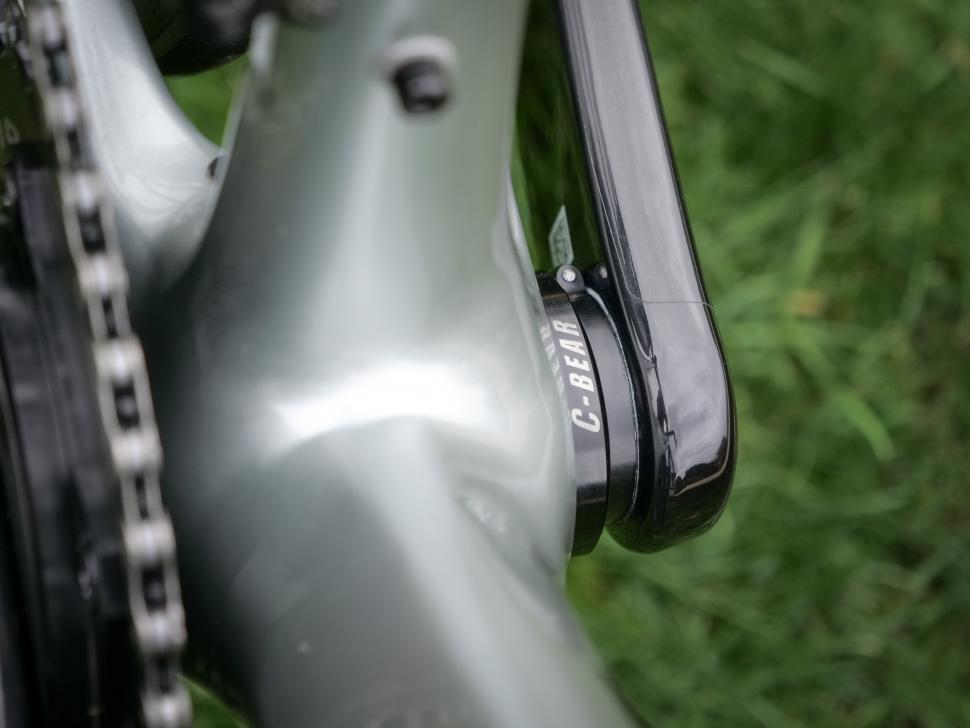
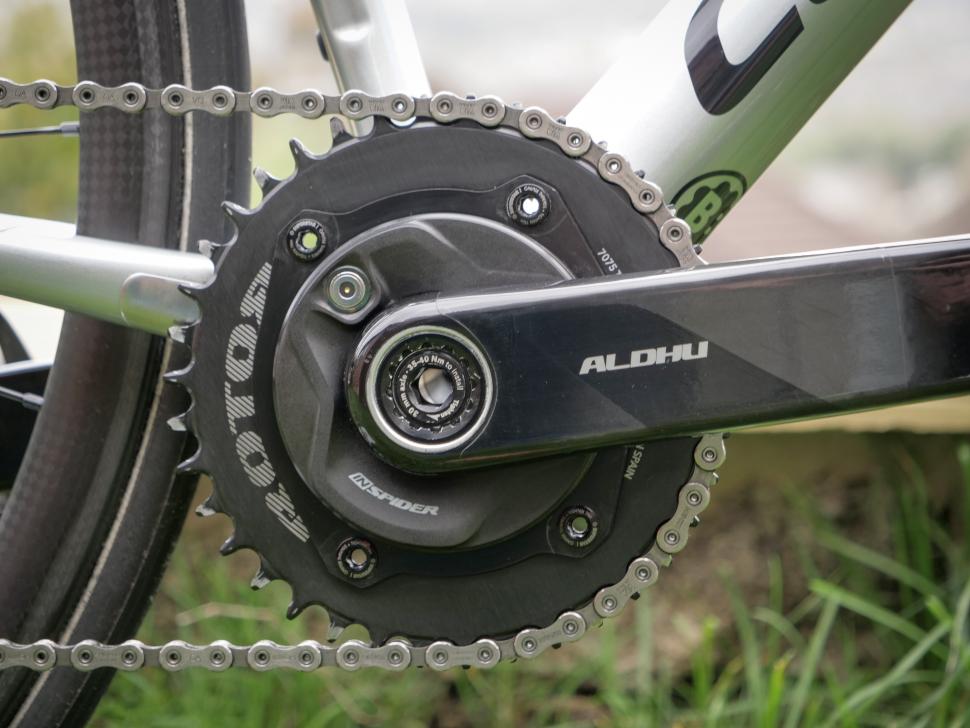
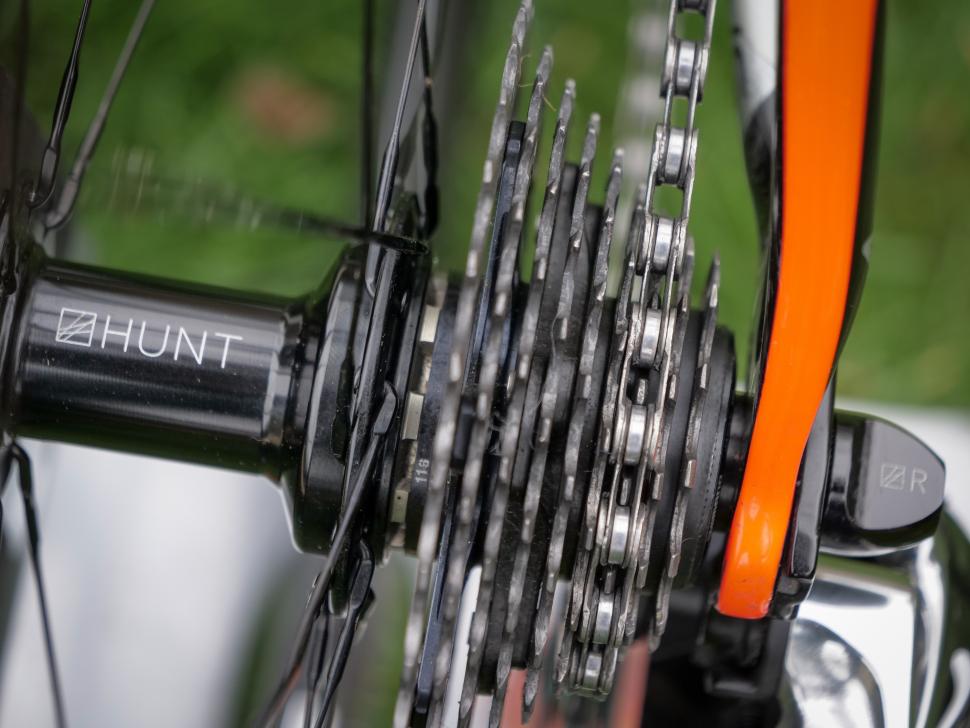
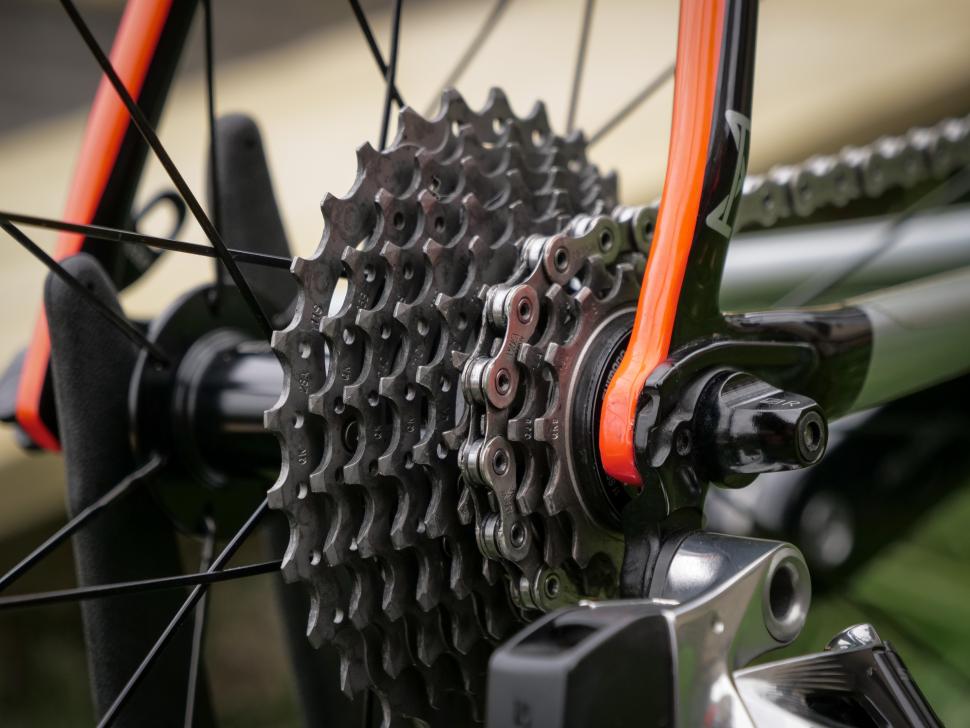
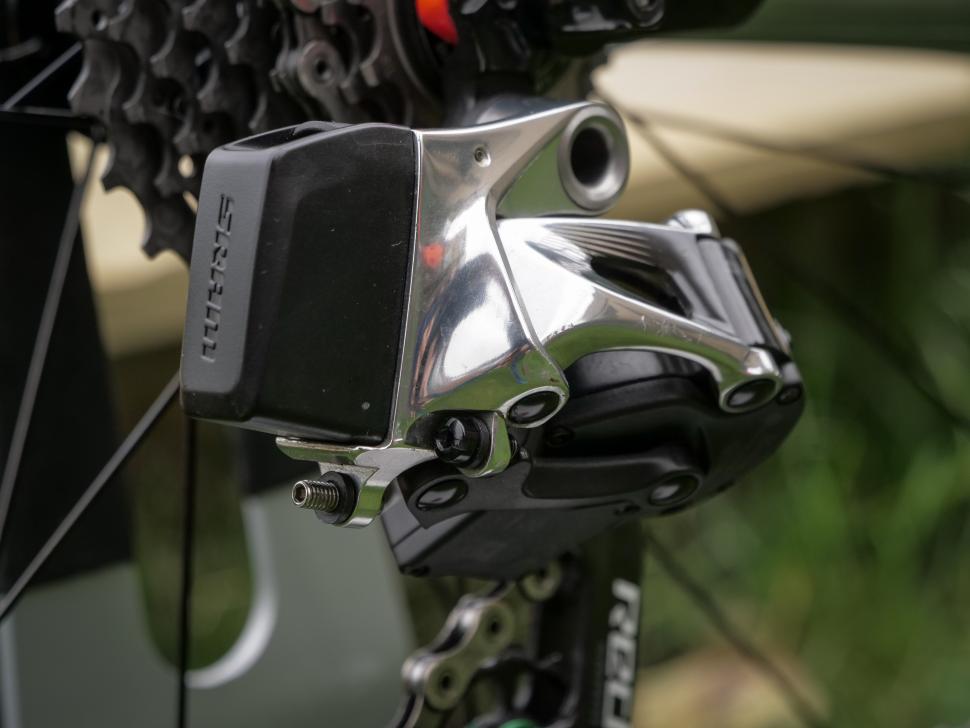
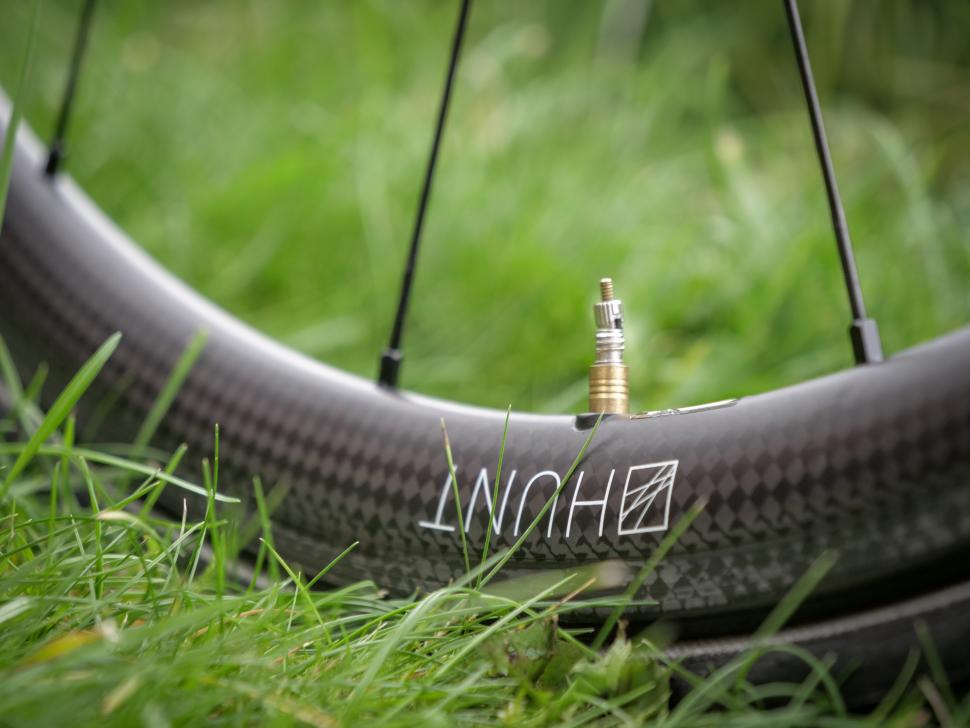
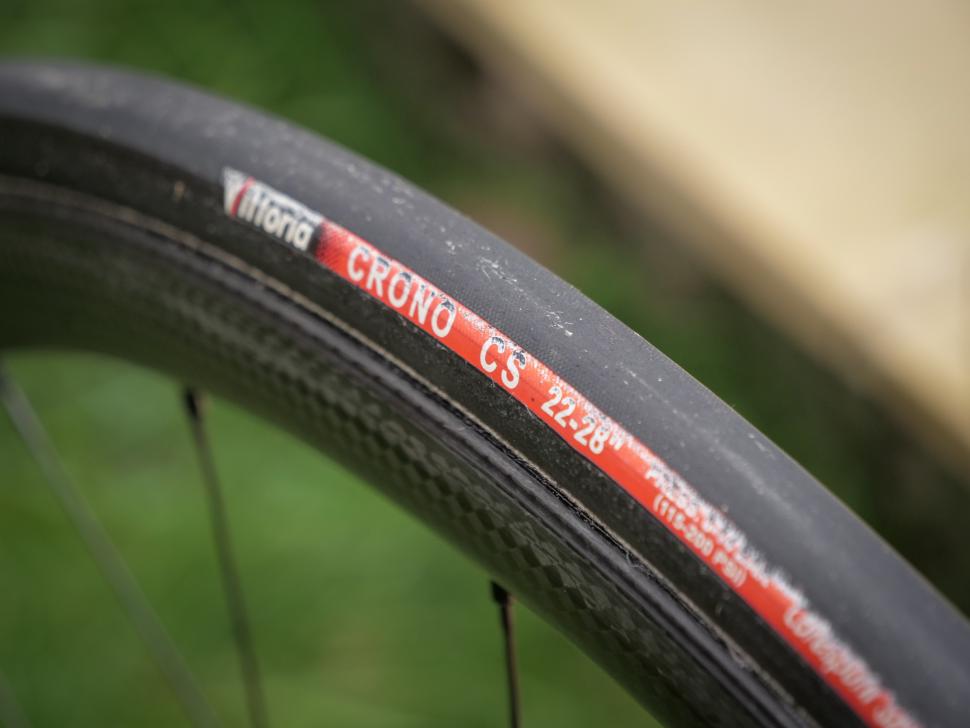
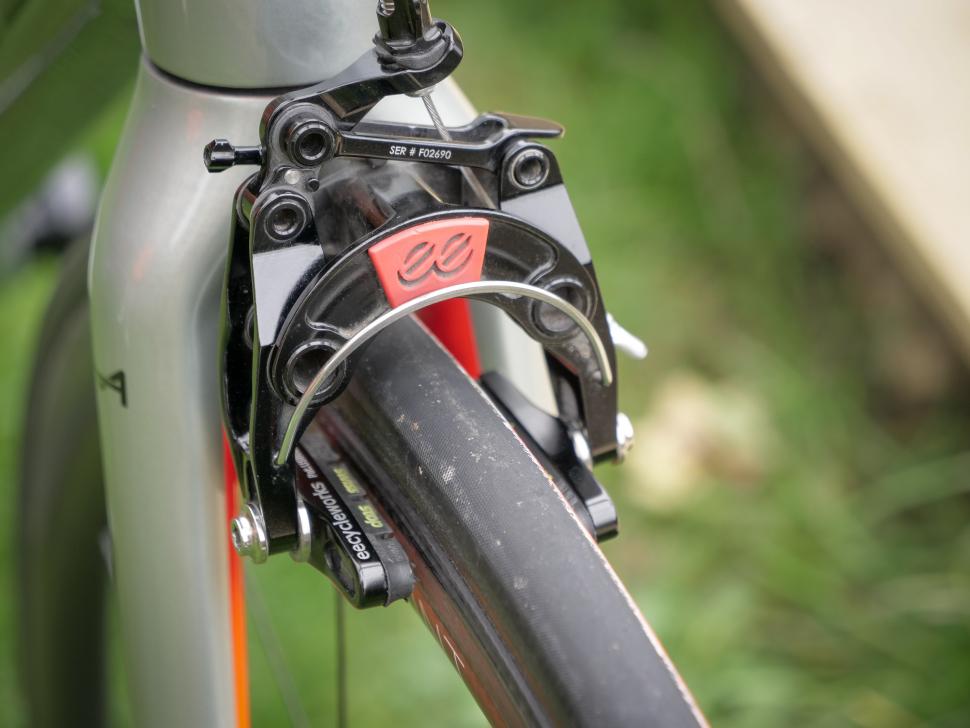
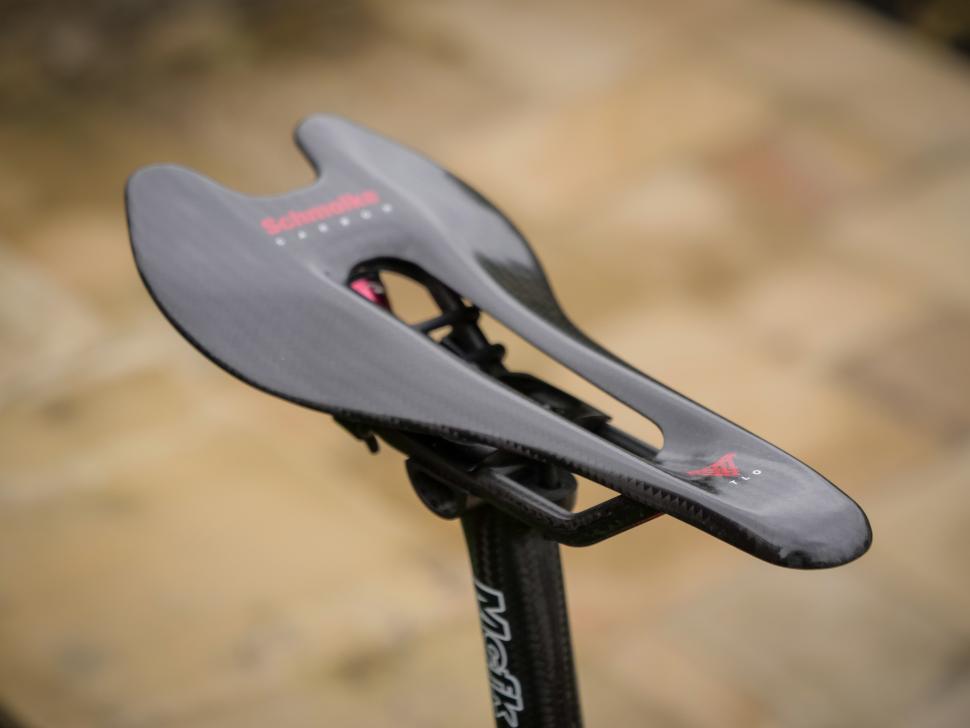
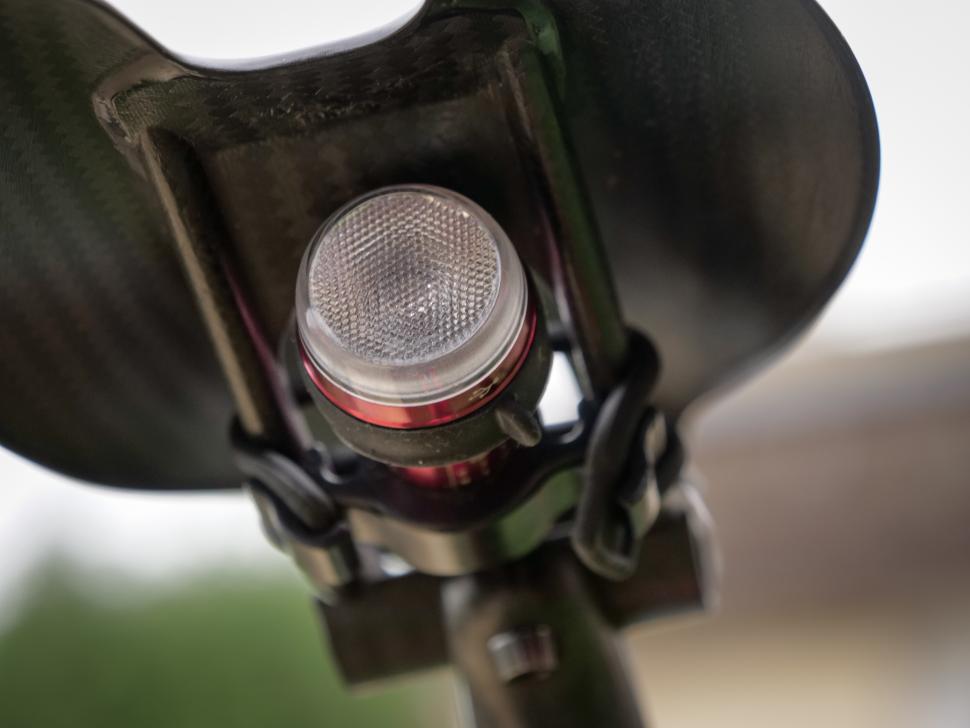
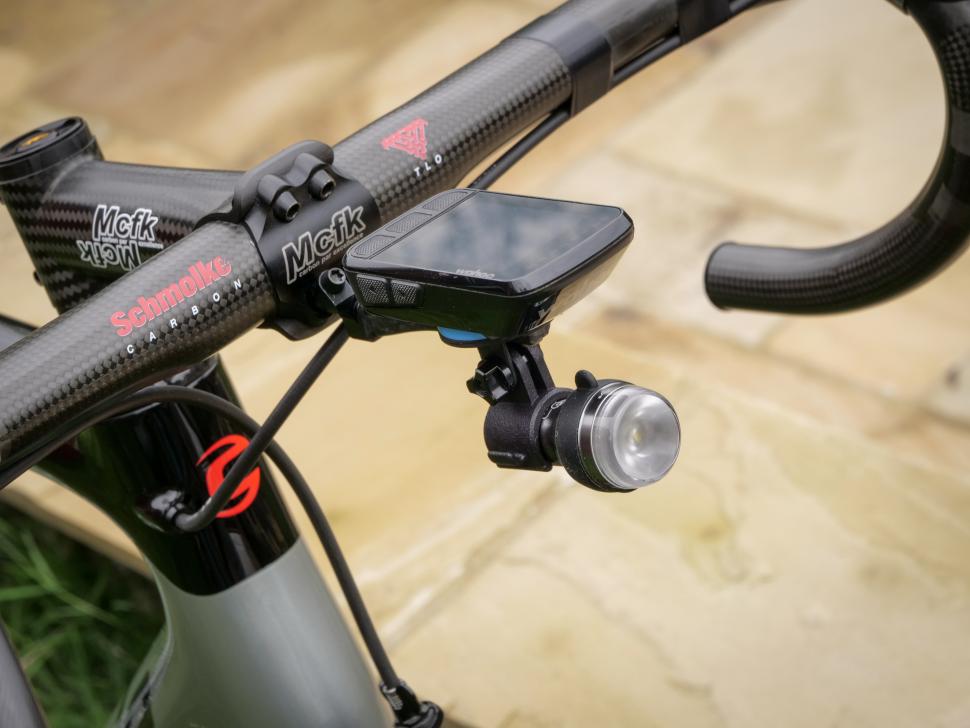
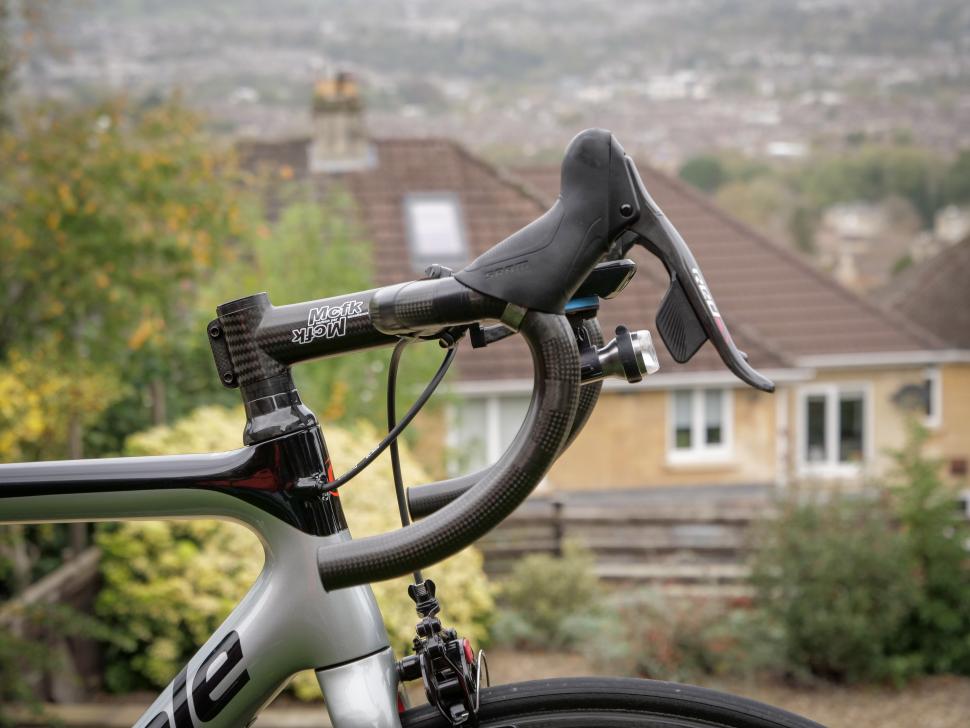
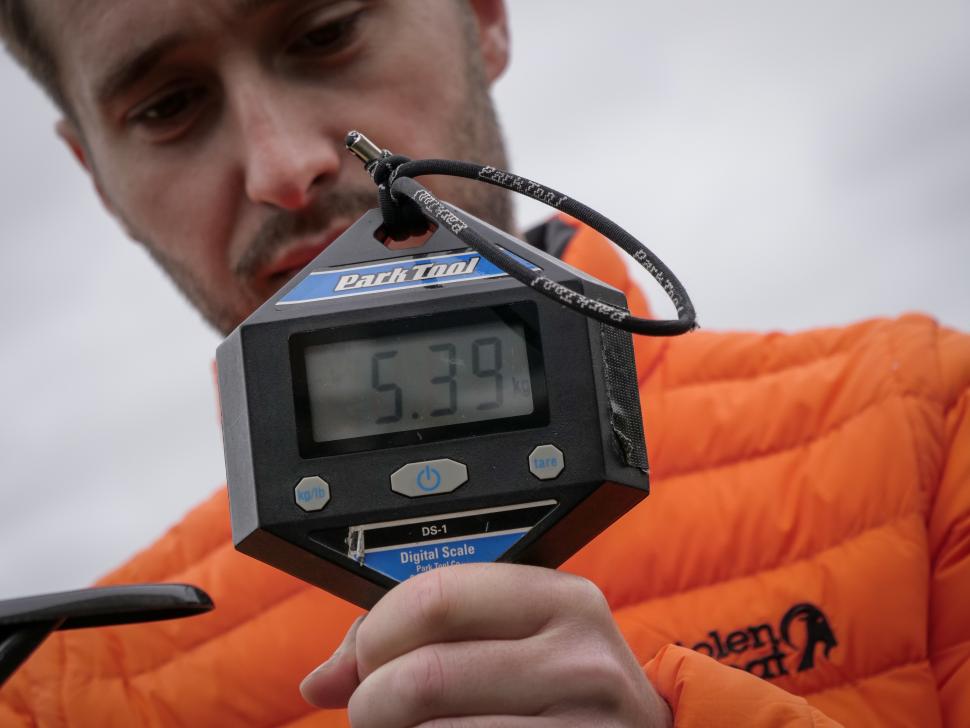
Add new comment
7 comments
Could have been made even lighter, by removing the brakes - these shouldn't be needed, for sprinting uphill, surely?
(Assuming it's a closed road event, so there isn't a legal requirement to have them fitted...?)
CTT rules mandate two independently operated brakes, operable from the widest part of the handlebars. Same situation with the lights, not needed but CTT rules say they're required.
This particular event was closed road but most HCs are not. Also don't forget competitors need to get back to HQ. On Sunday that meant descending the main road Horseshoe Pass back to Langollen. Brakes would have been quite useful there. So the basic rules of the game are that the bike has to be safely rideable on a public road.
I thought it might be something like that - would have been too obvious to not remove them
A "24cm bar" - the right numbers but not necessarily in the right order... Whatever, I was there on Sunday and can confirm that Andrew's final sprint was very fast. As he won by just 2 seconds, I wonder if it was that sprint that gave him victory.
Actually, it was those very, very skinny bars. And the rim brakes, of course.
#SaveTheRimBrake
"This is the final rim-brake SuperSix that Cannondale made, so thanks to that, and the lovely straight top tube that flows into the undropped seat stays, it holds a special place in not just Andrew’s heart, but also ours."
As the owner of the 2016 model, I can absolutely agree with this. A horizontal top tube with stays coming out from there make for such a cleaner looking frame than today's equivalents. No doubt those more modern frames are snappier, whizzier and whatever else but, aesthetically, nothing trumps this (as far as I'm concerned).